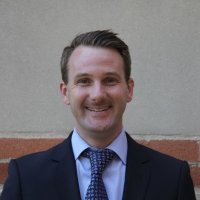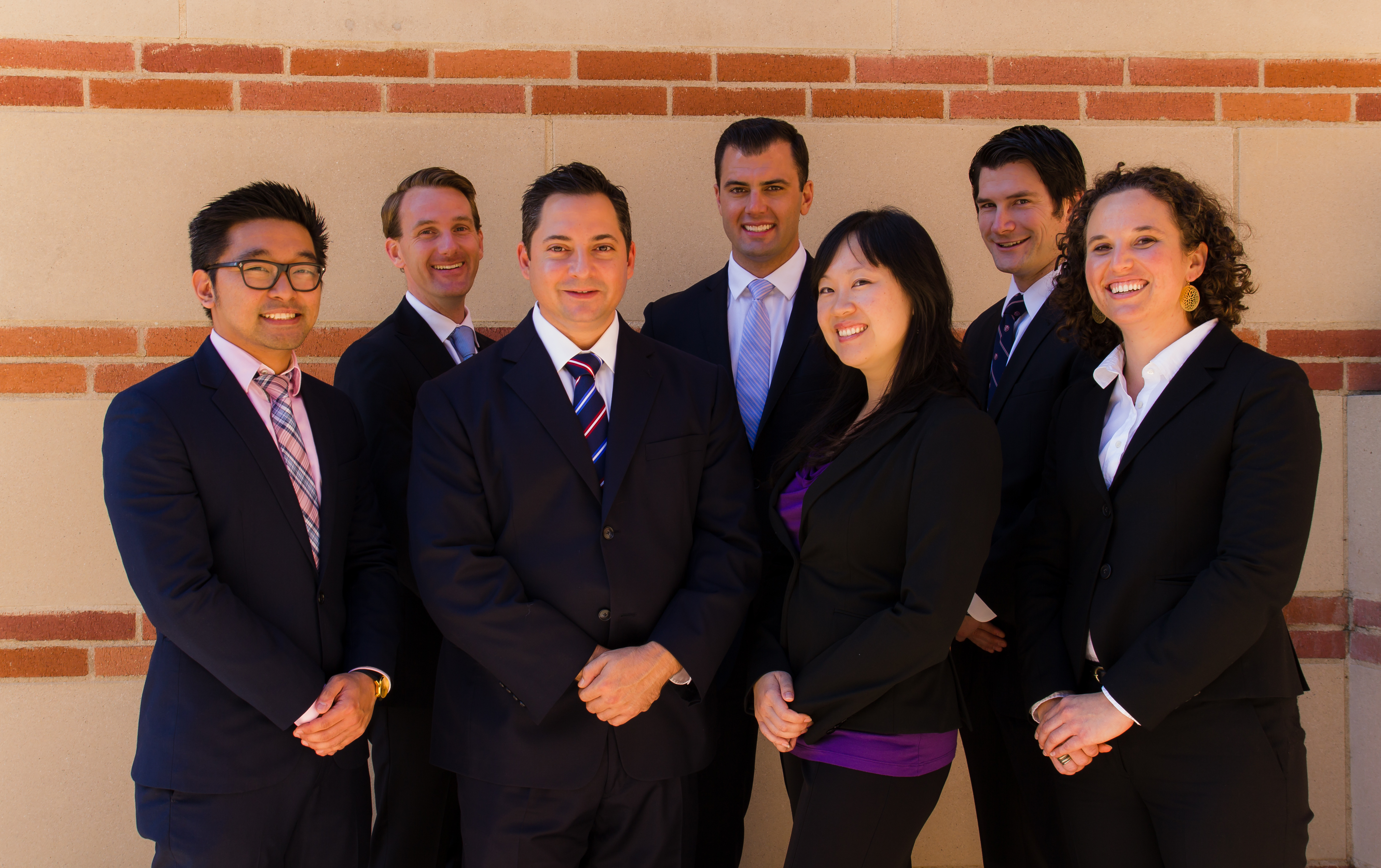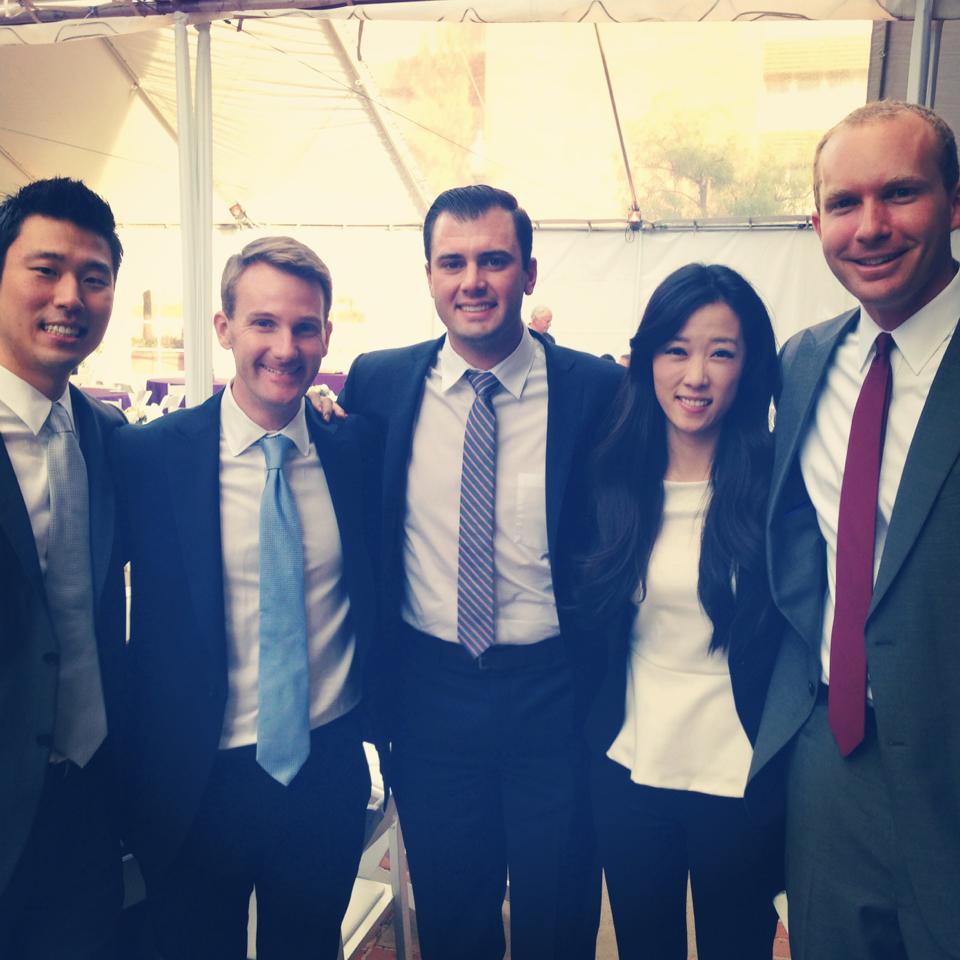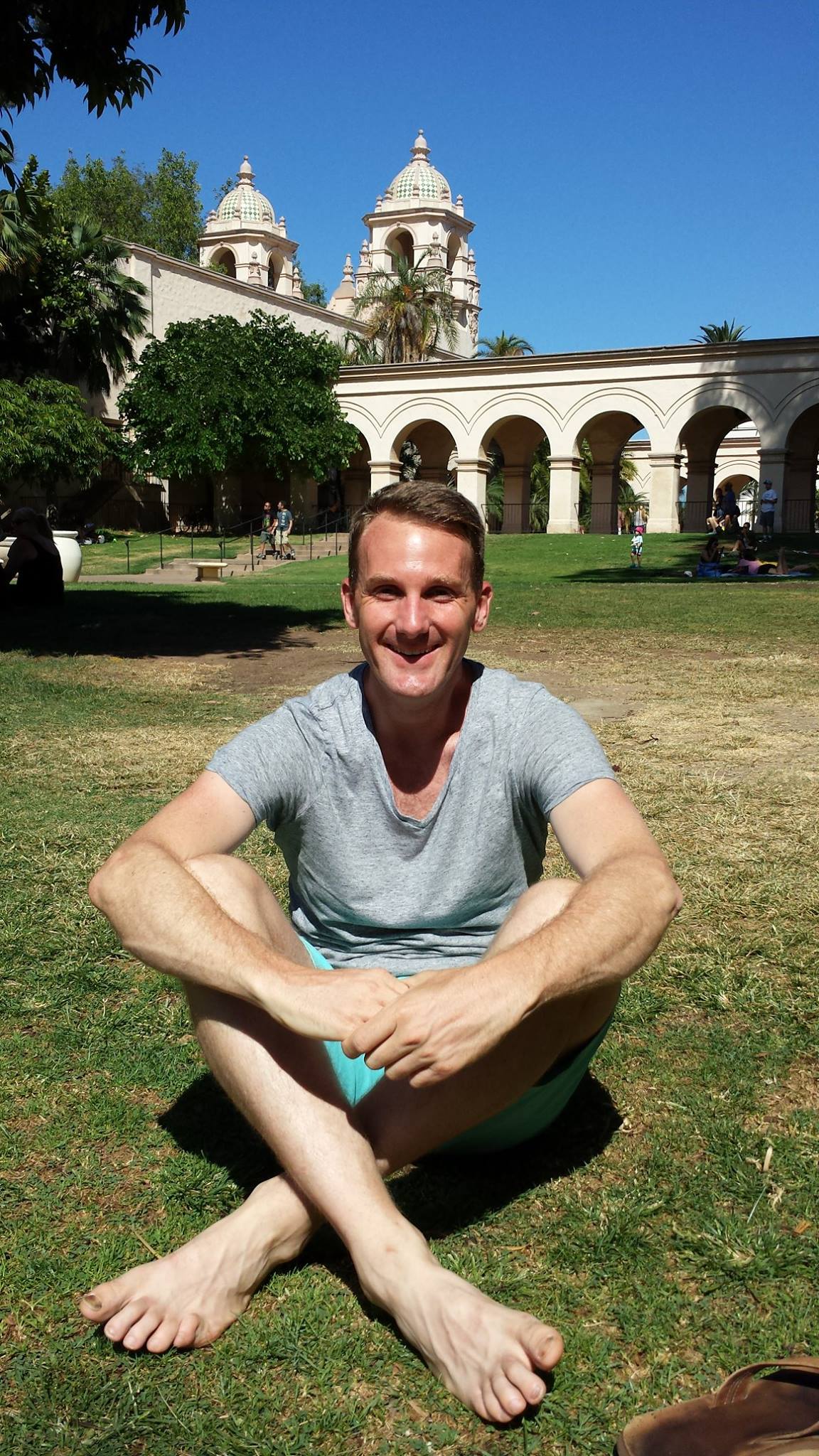Starting up and Standing up: Brian Sterz launches Accessible Capital Partners
How big do you want your life to be? How much risk are you willing to take? How many partnerships and alliances can you build? Will you be true to yourself along the way?

I’ve been working on this profile of Brian Sterz ’14, CEO and Founder of Accessible Capital Partners for a month now–with great anticipation–because Brian is leveraging his FEMBA degree to build a bold new chapter of his career and life.
Brian just graduated FEMBA and he’s launched his own company, Accessible Capital Partners. He was an extremely involved student leader during FEMBA, serving on the Executive Board of FEMBA Council and actively participating in ASAM (Anderson Student Asset Management).

Dylan: Brian, let’s start with your professional journey, then we’ll hear about the personal transformation you’re undergoing.
Brian: For sure Dylan.
I entered Anderson armed with my professional experience and my Chartered Financial Analyst (CFA) designation ready to learn how to start and run an effective asset management company. During FEMBA, I further honed my financial skill set, augmented with a summer internship in investment banking at Bank of America Merrill Lynch in Los Angeles.
I challenged myself, I really got out of my wheelhouse, with marketing, operations, and negotiations courses, and others, such as Data Analytics with R with Professor Rossi and Strategy with Professor Rummelt, that rounded out my capabilities. These courses, along with daily interactions with my entrepreneurial FEMBA classmates, are what emboldened me to venture out to launch on my own firm. Investing has always been my passion and I needed the education and experience that I gained at UCLA Anderson to make this entrepreneurial leap.
I learned to better manage an organization with my two years on FEMBA Council.

Dylan: Love it! Now tells them what happened after FEMBA.
Brian: After completing my UCLA Anderson FEMBA education, and having effectively completed a career transition, I decided to take the entrepreneurial leap in starting Accessible Capital Partners, a bridge lending fund based in Los Angeles. Having seen the investment management industry from several perspectives during my career prior to Anderson, including experience on the derivatives trading floor in San Francisco, at Callan Associates where I was part of a team that advised public pension funds on their fixed income investments, and later as a member of the investment committee at a local Registered Investment Advisor called EP Wealth Advisors, I knew that I wanted to open my own fund after business school.

Dylan: What components of FEMBA supported you to take the leap?
Brian: My experience with the Ziman Center for Real Estate, and particularly the passionate instruction of Eric Sussman and Paul Habibi, led me to combine my prior experience in fixed income with real estate to create Accessible Capital Partners.
My interest in real estate began during the heart of the global financial crisis in 2008, when real estate prices experienced their nearly unprecedented decline. During that year, I began the process of getting my real estate broker’s license in an attempt to take advantage of these prices that would undoubtedly prove to be bargains in future years. As Southern California has recovered from the crisis, though lessons-learned remain squarely in mind, conservatively-underwritten bridge financing appears to be an attractive route to pursue.

Dylan: Great Brian. Now, let’s shift a little bit to the personal. One of the things that’s impressed me about you is the friendships you’ve cultivated here, and your student involvement. (For my readers, it was Brian who collected all the testimonials that comprised the Doug Longo ’14 tribute blog post back in March.)
Brian: For sure. I was friends with Doug Longo through classes, ASAM and FEMBA Council. Also in ASAM with us was Ryan Hughes, who has also created his own company since FEMBA.
Ryan and I, during school and before we each created our own companies, we actually sent a lot of business each others’ way. Another example of FEMBA helping your career immediately, during school.

Dylan: And what’s this about Improv? Tell them about that.
Brian: Well this is a big deal for me, taking the leap and starting my own company. I knew that it was going to take a lot of persistence and boldness on my part.
I wanted to put myself out there. I love public speaking, but wanted to get better at it. I signed up for an improv class because I knew it would force me to grow. We met four times and at the end we each got a 5 minute slot in front of a real audience at the Hollywood Improv.
I did that set at the Improv. There’s this whole comedy community in LA, and a guy in the crowd came up to me afterwards and he then got me booked The Comedy Store. I’ve already done the second show, and my next performance is November 5th! I’m doing it again! I post invitations on my Facebook page.
Dylan: Which was scarier, Improv or your GAP Final Presentation?
Brian: Ha! No comment!
Tell you what. Really what’s scariest is starting my own company. I’ve gone from having safe, comfortable, high-paying jobs to starting from scratch. While I’m getting started, I’m doing things like driving for LYFT and renting my apartment on airbnb to bride the gap. This isn’t all roses. I’m pretty sure it’s a very small percentage of b-school grads who are driving for LYFT. But I’m OK with that. The point is I’m doing what it takes to get my business profitable and successful.
Dylan: I love it. Thanks for the reality check. Anything else?
Brian: Well I’m a start-up, so I just have to put in one more pitch for my firm.
Accessible Capital Partners seeks to provide debt capital to real estate entrepreneurs and developers who require timely and flexible capital which traditional banks simply cannot provide in today’s environment. The fund seeks to conservatively underwrite loans and partner with borrowers to create mutually beneficial long-term relationships. In this way, the fund can provide sustainable, risk-adjusted returns for its investors. As technology changes the face of real estate investing, the fund will seek to leverage crowd sourcing platforms to both raise and deploy capital efficiently and effectively. Currently, we’re seeking investment partners.
The Anderson Alumni community has already been so supportive of this effort and I look forward to partnering with our esteemed colleagues for many years to come! Interested persons, please reach out to me via LinkedIn.





